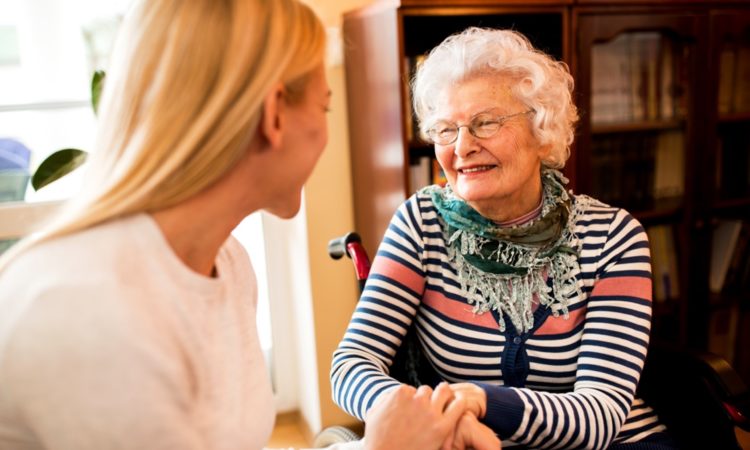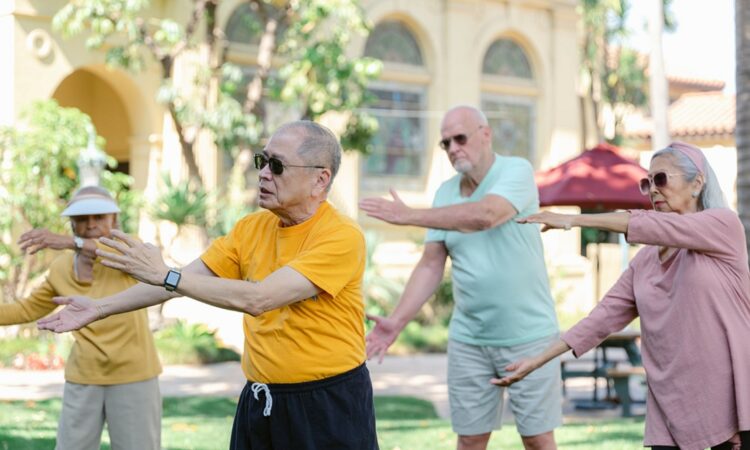Hollenbeck Palms
How proper lighting helps people living with dementia symptoms
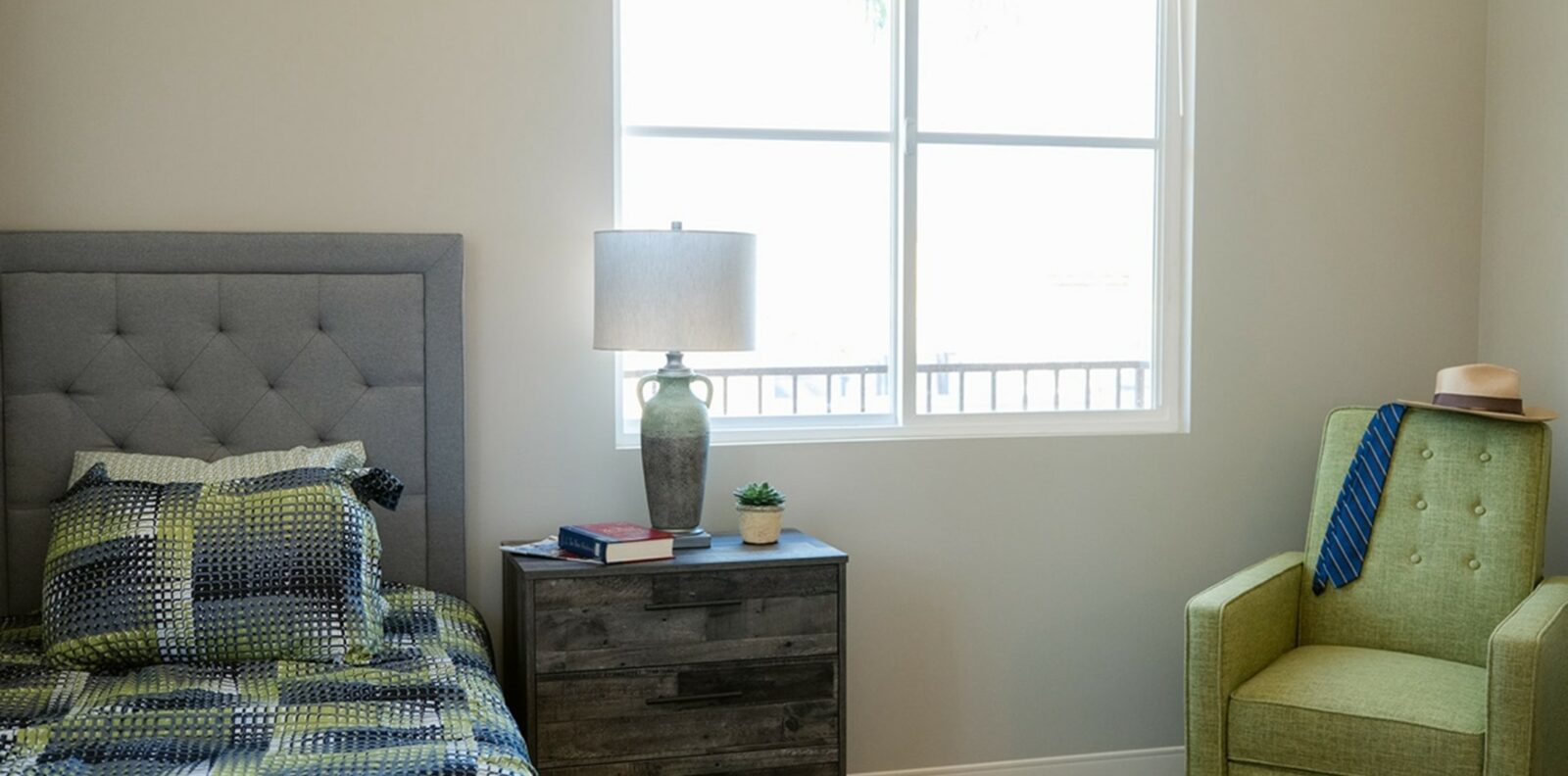
Living with dementia symptoms is life-changing in many ways. A person living with dementia experiences the world differently, from what they feel to how they perceive their surroundings. Over time, as dementia symptoms intensify, the light in the world of an individual living with dementia symptoms can flicker, but darkness is not inevitable. Through the support of their loved ones and professional Dementia-Aware caregivers, the world around them can be made more welcoming and accommodating.
There are many ways family members and other support systems can brighten their world. In this article, we’ll explore the roles lighting and interior design play in helping someone with dementia symptoms, which is one of the many Dementia-Aware strategies implemented at Hollenbeck Palms.
Proper lighting and exposure to natural light throughout the day are essential to everyday care. Improper lighting can trigger poor sleep and agitation. These are common occurrences among individuals living with dementia symptoms, underscoring the importance of implementing a lighting strategy that complements the everyday rhythms of your loved one’s life.
The science behind lighting
The circadian rhythm is life’s time signature, setting the pace for when people sleep and wake. This internal clock is regulated by our surroundings. Varying levels of light that reach the eye impact when people begin to fall asleep by regulating the amount of hormone melatonin that is released into the body. Mealtimes and activity levels are other contributors to the circadian rhythm.
In older individuals, however, the area of the brain responsible for regulating the circadian rhythm becomes more inefficient as they age. As a result, the ordinary contributors that regulate the circadian rhythm are thrown off.
Dangers of poor circadian rhythm
Statistics show that individuals with dementia symptoms will spend much of their overnight sleep time awake and, subsequently, a lot of time during the day asleep. This imbalance is unhealthy and poses serious risks. Unregulated sleep patterns will lead to disturbed sleep, which can prompt individuals to wander when their surroundings are dimmed and devoid of sufficient lighting. This could increase a person’s risk of falling and causing injury to themselves.
Poor sleep can also increase agitation and discourage participation in physical and social interactions and cognitive and memory activities. This is generally known as sundowning.
Proper lighting
Well-lit areas and proper lighting are key to establishing a healthy daily rhythm for better sleep. This also helps prevent nighttime falls. When individuals with dementia symptoms are exposed to bright lights during the day, it can have a positive effect on their alertness and daytime wakefulness. Dementia-friendly lighting can also boost their overall mood, decrease agitation and increase their overall quality of life.
For example, a 2014 study by the National Institute on Aging analyzed the sleep patterns of individuals living in a long-term care facility with an average age of 87 years old. It found that the participants saw a large jump in sleep quality (30 minutes per night) by regulating their exposure to certain amounts of light. In addition, the facility’s caregivers reported a drop in agitation and depression in the participants.
If you are living with someone experiencing dementia symptoms and are reorganizing your home for improved lighting, it is important to factor in when daylight enters common areas and activity rooms. Smart lighting and controls are other helpful tools that can time and shut off lighting to fit the needs of your loved one. Task lights and amber-colored night lights are also ideal.
There are many ways you can support your loved one. Paying close attention to when they are exposed to light can have a substantial impact on the course of their entire day. When you provide your loved one with this kind of care and attention, you are ensuring their days are positive and fulfilling.
At Hollenbeck Palms, our Hensel Memory Enhancement Center in Los Angeles is designed with a unique layout intentionally created to encourage independence by minimizing confusion, with special textures, shapes and colors that enhance well-being. Part of that is having an open design that promotes proper lighting. This is just one of our many memory care strategies to support residents’ comfort and sense of well-being on a daily basis.
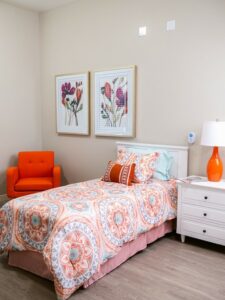
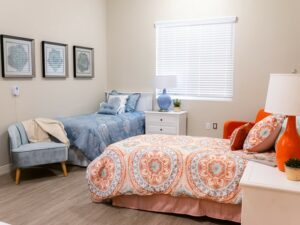
Experience the Hollenbeck Palms difference today by contacting us at [email protected] or (323) 307-4505.
